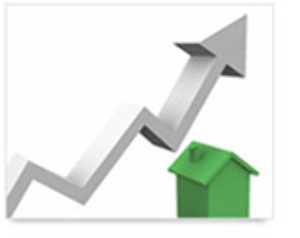
The latest Trade Me Property Price Index is out today and it shows the national average asking price increased by 9% year-on-year to hit $701,750 in August.
Trade Me Property spokesperson Aaron Clancy says this marks the second consecutive month where the national average asking price has shown such massive growth.
“July also saw a 9% year-on-year increase but, prior to this, the last time we saw such a large increase was in 2017.”
Further, every region in the country saw strong annual price growth in August – including the country’s two biggest urban centres, Auckland (up 8.6% to $948,800) and Wellington (up 9.0% to $689,500).
Demand appears to be behind the growth, with demand nationwide up by 19% in August when compared with last year and all regions seeing year-on-year increases.
The regions that saw the largest increases in demand were Wellington (34%), Nelson/Tasman (28%) and Manawatu/Whanganui (25%).”
At the same time, market supply nationally dropped by 3% year-on-year with most regions seeing supply slow as compared to August last year.
Clancy says that to put it simply, it’s a great time to be selling your house. “Demand is extremely high right across the country and supply isn’t keeping up which means potential buyers must put their best foot forward.”
Trade Me Property’s data provides further evidence of the ongoing strength of the housing market.
It comes hot on the heels of recent data from REINZ, which showed median house prices were up by 16.4% year-on-year in August. It also revealed that August sales were up by 24.8% year-on-year.
Earlier in the month data from Realestate.co.nz, CoreLogic and (for Auckland) Barfoot & Thompson also all reported widespread price growth (as opposed to price decline) and high demand.
However, in its Pre-election Economic and Fiscal Update (PREFU) yesterday, Treasury forecast that the average house price will fall 5% by June next year, before rebounding as economic confidence recovers and immigration picks up.
Century 21 owner Derryn Mayne is joining a growing number of economists, property experts and commentators saying Treasury has got it wrong in its forecast – even though the country is officially in recession.
There are simply more factors in real estate’s favour, than there are against, she says.
“Unemployment is set to be less than initially forecast, interest rates are expected to stay at record low levels if not going lower, the removal of LVRs makes it easier for people to get into the housing market, demand remains strong while supply is short, and rents are holding up.”
That means the market is again seeing “mum and dad” investors in action, while returning expats and Kiwis living overseas are now also actively investing in New Zealand property, Mayne adds.
For CoreLogic senior property economist Kelvin Davidson, it’s no surprise that property values have generally held up since March (except in Queenstown), or even continued to rise in a number of locations.
Demand is hitting up against the low supply of listings on the market and lockdown 2.0 delayed Spring’s normal seasonal rise in new listings, so it is likely buyers will continue to face restricted choice, he says.
“Of course, there are still risks out there for the property market. The likelihood that unemployment will rise a bit more sharply over the next few months is a primary threat.
“Although to the extent that the burden falls on younger and lower-paid workers in sectors like tourism/hospitality, the impact on buyer demand for property may be more muted than it could have been.”
But the boost being provided from low mortgages rates just seems to be trumping everything else at present, Davidson says.
Read more:



